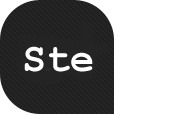A crucial component of realizing your online capabilities is ensuring
that you have the right personnel to help you achieve your goals. Our
experience has shown that by filling a few key positions, organizations
are able to not only implement the strategies we develop together, but
maintain and grow their existing websites and online organizing,
outreach and fundraising campaigns.
At EchoDitto, our goal is to empower organizations to
communicate with their members, constituents and customers in the most
effective way possible, using the most efficient, innovative and
appropriate technology available. As we like to say, we’d much rather
teach you to fish than give you a can of dolphin-safe tuna.
Below is a list of what we believe to be the five most crucial
positions required for maintaining and growing your
organization’s online presence. As you can see, the majority
of these positions are more strategic than technical, although the
content manager position does require some basic web development
skills. Depending on the size of your organization, and your online
goals and objectives, it may make sense to hire an internal web
developer/programmer/system administrator who can manage the more
technical aspects of your operation.
Of course, we know that few organizations have the resources (or
space!) to hire 5 new people at once. Depending upon the size of your
organization, it will make sense to fill these roles in a variety of
ways: one skilled staffer may be able to cover 3 or 4 of these roles
for a smaller organization and outsource the rest to consultants; the
online team for larger organizations may require a team double in size.
Essential
- Internet Director (Role: Strategy and Planning)
Your organization’s internet director will oversee the successful
strategic and technical planning and execution of online campaigns and
initiatives, including online communications plans (email/blog/web
content), and organizing efforts. In addition to coordinating among
program areas and staff, this person would also be responsible for
overseeing your organization’s relationship with other online
community influencers (e.g. bloggers, social networking websites,
online video outlets)—a role which could eventually evolve into
its own full-time online organizer position (see below).
Read a complete job description >>. - Web Content Manager (Role: Content and Administration)
Also referred to as a webmaster or web producer,
this person is responsible for managing your organization’s
online community presence on a day-to-day basis, such as implementing
content or functionality associated with a campaign or initiative. The
webmaster should be technically proficient for day-to-day site
administration or design as well as have experience getting results
through vendors or contractors. The webmaster works closely with the
internet director to maintain and implement the online campaign/content
plan. We believe that filling this position is not only cost-effective
but, in fact, critical to the success of most online strategies.
Read a complete job description >>.
Secondary Hires — for Building Capacity
- Online Organizer (Role: Outreach and Campaign management)
Initially, your internet director and webmaster should be able to
handle outreach to the greater online community, as well as manage the
user-generated content associated with the various interactive or
participatory features of your website. However, as your online
presence grows, we recommend appointing a dedicated online community organizer
whose primary responsibility will be to devise, create, and manage
online communications with your community members (e-mail, blogs,
discussion groups, feedback, etc.) and organizing or campaign efforts.
Ideally, this person will also manage your organization’s
relationship with other online community influencers, and will reach
out to external blogs and online networks to promote your campaigns.
Read a complete job description >>. - Creative Director (Role: Design and Branding)
Your creative director
is charged with determining the best ways to visually represent your
organization’s identity online. This is a people-oriented job
responsible for developing high-level design concepts for projects
under frequently tight deadlines. While most Creative Directors do
their own design work, they are also responsible for recruiting and
managing third party design firms as well as internal design resources.
This role is appropriate for larger organizations. In smaller
organizations, this role is usually filled by a design-savvy member of
the internet team (webmaster / organizer / developer) or outsourced to
an external design firm.
Read the complete job description >>. - Web Developer/Engineer (Role: Technical Development)
While some organizations choose to hire a tech-savvy webmaster to
handle minor technical updates and outsource the heavy technical
lifting, other organizations find that it makes good financial sense to
invest in a full-time developer. If your organization chooses the
latter, look for someone with programming, database administration, and
some basic graphic design skills. Your ideal candidate should serve as
a strong strategic thinker and be familiar with emerging web
technologies. Finally, ensure that your candidates have experience with
the same technology powering your online infrastructure (e.g. don’t
hire a PHP developer if you have a website running on cold fusion).
Note: Consider delaying this hire if your organization is licensing
software that includes monthly support from a product team that can
implement custom campaigns (e.g. Convio, Blue State Digital, Democracy
in Action).
Read the complete job description >>. - Database Administrator (Role: Data Coordination)
While not strictly a member of the internet team, a Database
Administrator, or DBA, is a crucial part of your overall constituent
management strategy. As your systems for storing donor, volunteer,
activist, and member data grow larger, a Database Administrator will
work to keep them all coordinated, particularly if these systems span
departments (Development to Communications to Field) or platforms
(Raiser’s Edge to Convio to Salesforce and custom applications).
http://www.echoditto.com/onlineteam
